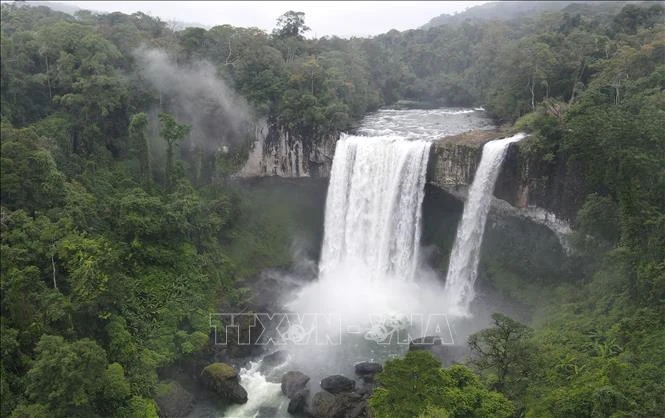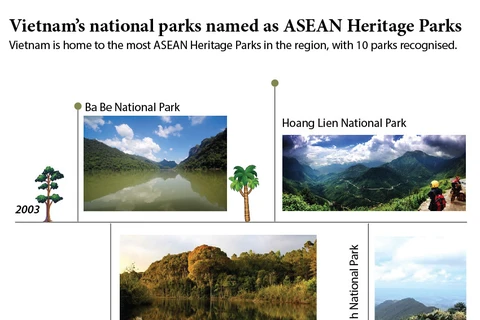
Hanoi (VNA) - The Ministry of Natural Resources and Environment (MoNRE) is developing a network to connect ASEAN Heritage Parks (AHPs) in Vietnam, as part of activities in implementing the National Biodiversity Strategy to 2030, with a vision for 2050.
The scheme aims to speed up the implementation of international commitments on nature and biodiversity conservation in 2021-2030, and share the rights and interests of stakeholders in preservation and sustainable use of biodiversity in line with sustainable development orientations.
Le Ngoc Tuan, Director of the MoNRE’s International Cooperation Department, said that the AHP programme is one of the bloc’s environmental cooperation initiatives, which was launched based on the ASEAN Declaration on Heritage Parks by ASEAN member nations’ environment ministers in 2003, aiming to comprehensively conserve the region's unique and important ecosystems.
The AHP programme’s strategic objectives are developing agreements between AHPs and stakeholders to conserve prioritised areas and address threats to biodiversity; strengthening the capacity of AHP management agencies to raise public awareness of conservation and community engagement; encouraging the engagement of local communities in conservation efforts.
According to Nguyen Thanh Vinh from the MoNRE’s Nature and Biodiversity Conservation Agency, management collaboration in the AHP network will help enhance access of local communities to traditional knowledge, and sustainably exploit natural resources; strengthen local communities’ participation through livelihood development programmes; attract funding sources for AHPs; and improve the management capacity of the AHPs in line with the objectives of the Kunming-Montreal Global Biodiversity Framework.
ASEAN Heritage Parks (AHPs) are protected areas of high conservation importance, preserving a wide spectrum of representative ecosystems of the ASEAN region. They importantly contribute to conserving genetic resources, ensuring the sustainable use of ecosystems, maintaining natural areas with cultural and educational value, and raising awareness of biodiversity conservation among people in ASEAN countries.
Vietnam currently has 12 areas designated as APHs. The country sets to have three more of this kind by 2025./.






















